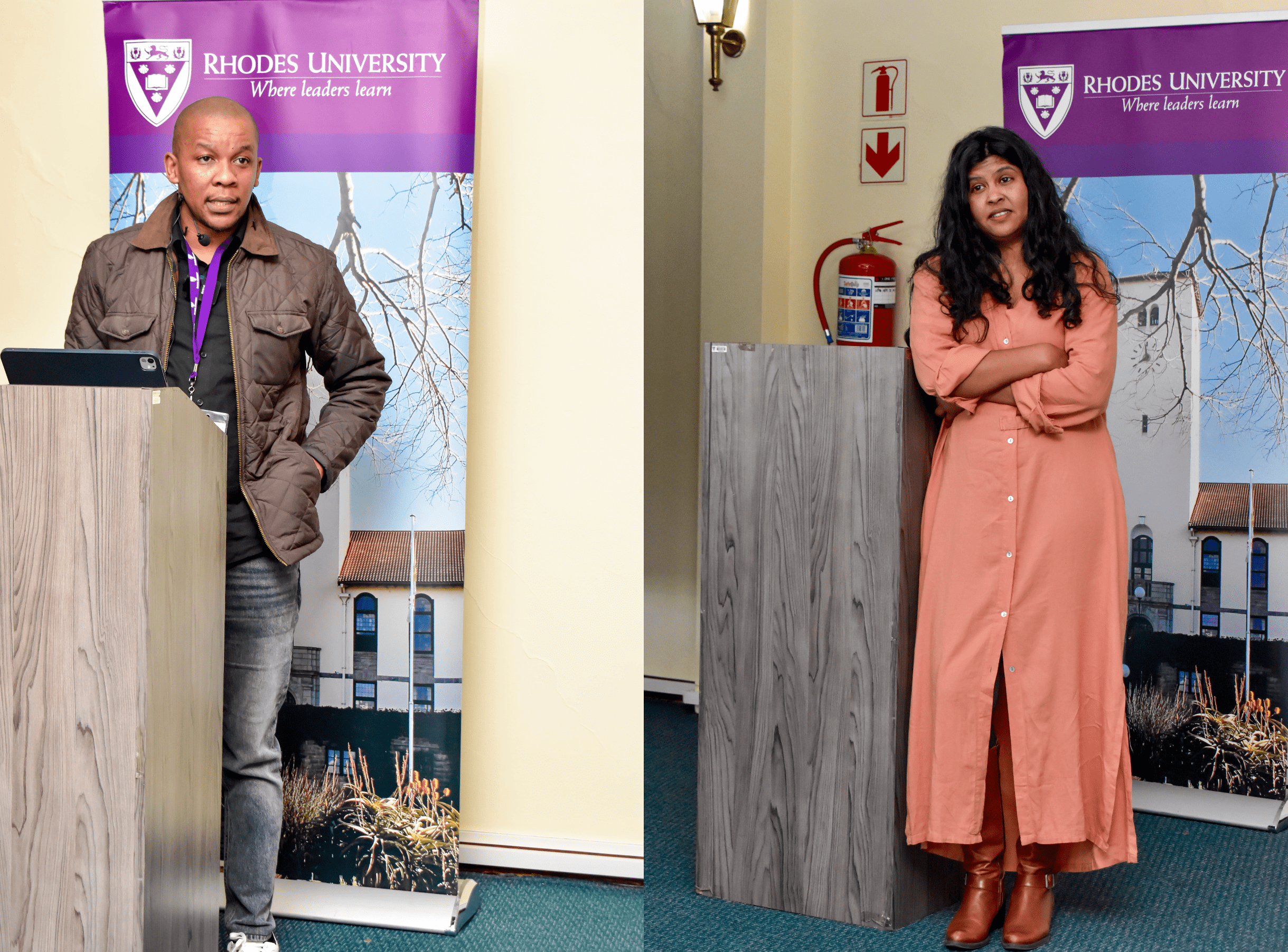
By Athenkosi Mndende
Rhodes University’s Centre for Higher Education Research, Teaching and Learning (CHERTL) and the Multilingualism Moves @RU Project under the Division of Equity and Institutional Culture hosted a two-day colloquium at the Gavin Relly Postgraduate Village on 30–31 July 2025. The event brought together academics, students, and political activists to reflect on the long-term impact of the 2015 and 2016 #RhodesMustFall and #FeesMustFall protests and to assess how far the university has come in transforming its curriculum, culture, and institutional structures.
Prof Jo-Anne Vorster, head of CHERTL, welcome the guests and opened the proceedings. The first keynote was delivered by former student activist and current Member of Parliament, Lufefe Mkutu, who called for the integration of African cultural values in academic life. He warned against an overreliance on Western paradigms, especially in mental health, where traditional African knowledge remains sidelined. Mkutu also noted that digital platforms and emerging AI tools risk erasing African politeness strategies by ignoring culturally significant expressions like "please" and "thank you."
Day two was opened by Dr Claire Kelly, Director of the Division of Equity and Institutional Culture. The second keynote came from Dr Camalita Naicker, who reflected on her experiences as a student activist at Rhodes and as an academic at the University of Cape Town. While acknowledging some progress, she argued that the root issues of coloniality, neoliberalism, and exclusion persist. True decolonisation, she said, requires a fundamental shift in knowledge production and institutional culture—not just representation or token reform.
Current and former students from various faculties also shared reflections. One of the former students recalled how universities often felt like alienating spaces that demanded collective struggle for change. While #RhodesMustFall gave rise to #FeesMustFall, some students were silenced, labelled disruptive, or expelled for disturbing the so-called ‘university peace.’ Others were co-opted to undermine the movement from within. Although the goal was institutional transformation, many paid a personal cost. Exclusion remains a pressing issue as some students are still unable to graduate or find work due to withheld certificates linked to outstanding fees. A pattern of decolonial washing has also emerged, where institutions claim transformation without meaningful change. Genuine transformation requires honesty, time, and sustained commitment—it cannot be rushed.
Today, student struggles are quieter and more individualised, shaped by food insecurity, debt, mental health challenges, and the ongoing pressure to survive. Many still lack a sense of belonging, and their voices are often only acknowledged during protest action. The consensus in the colloquium was that the deep work of decolonisation remains incomplete.
Suggestions included centring African knowledge systems and languages, embedding African perspectives across disciplines, translating material into indigenous languages, aligning curricula with students’ lived realities, dismantling Eurocentric, ableist, classist, and racist frameworks, and reclaiming the curriculum for social purpose. rather than mere job preparation, using African languages in research and assessment, challenging dominant notions of legitimate knowledge, developing critical and emotionally intelligent thinkers, and building student confidence instead of focusing on perceived deficits.
To avoid repeating cycles of harm, it was suggested that universities must foster genuine spaces for healing and inclusion. Translating content alone is not enough; curricula must reflect students' lived realities and knowledge systems. While digital creativity played a key role in the movement and students’ voices being heard, lasting transformation demands more than surface-level adjustments.
